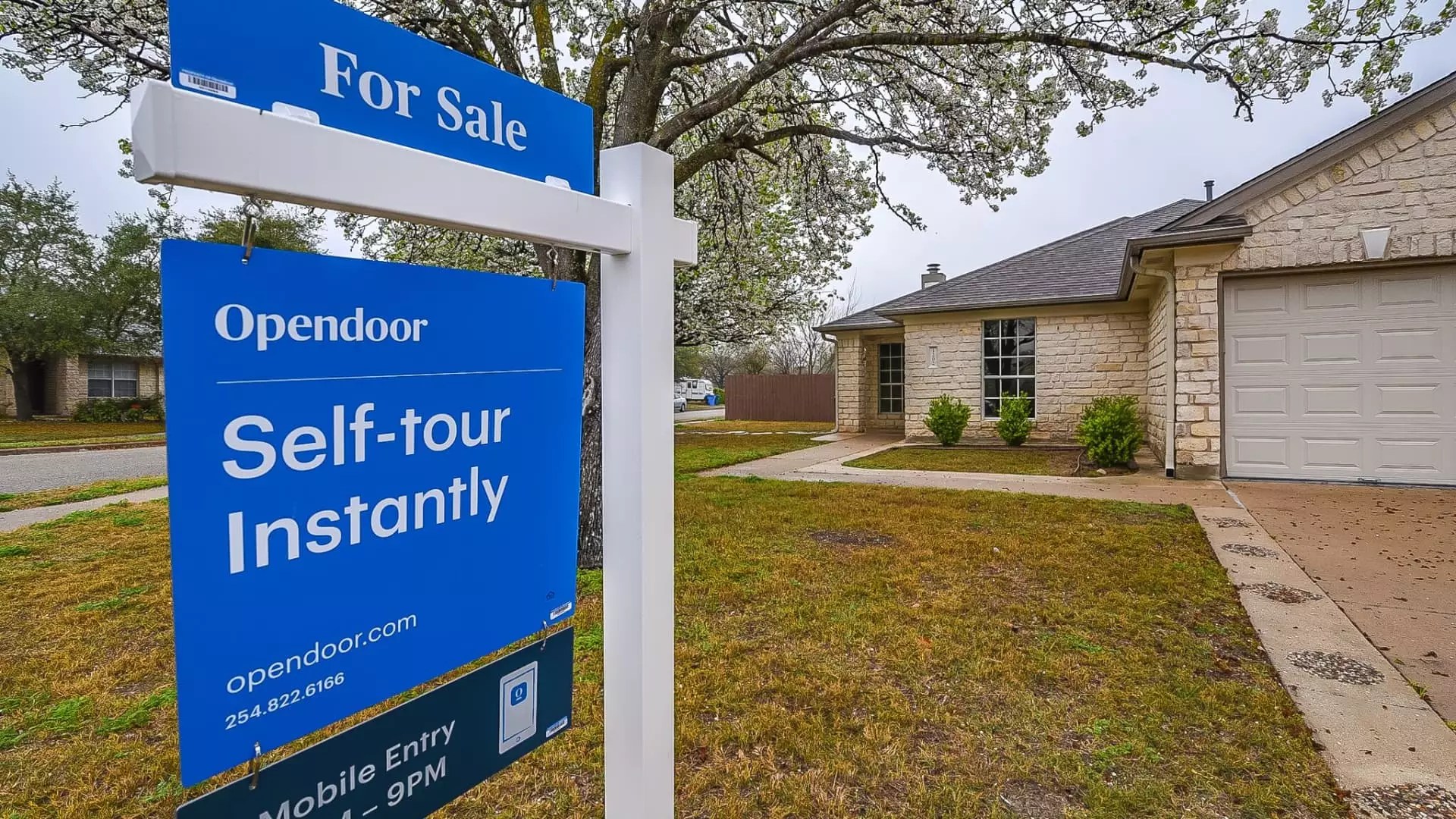Opendoor’s recent stock surge appears more like a fleeting mirage than a genuine recovery. Rising nearly fivefold since July, the company’s shares have captured the attention of bullish investors, yet beneath this surface lies a fragile and uncertain foundation. CEO Carrie Wheeler’s cautious optimism and gratitude toward investors mask the harsh reality—Opendoor remains highly vulnerable amid a deteriorating housing market and questionable business model shifts. Investors, seduced by short-lived momentum, forget that this rally is built on shaky ground, fueled more by speculation and hope than concrete results.
The Fragile Financials and Misguided Optimism
Despite a modest second-quarter revenue increase, Opendoor continues to hemorrhage money and faces declining prospects. The company’s revenue for 2023 is expected to decline sharply, with projections of at most $875 million—a stark 36% drop year-over-year. Their strategy of expanding into less capital-intensive referral services is more of a lukewarm attempt at pivoting, not a decisive solution. The company’s decision to cancel the reverse split proposal and regain Nasdaq compliance might seem like positive developments, but these are mere band-aids covering gaping systemic issues. The substantial drop in revenue, coupled with lowered home acquisitions and cautious spending, signals that Opendoor’s core problem—the collapse of housing demand—is far from solved.
The Market Reality vs. Investor Fantasies
The rally triggered in large part by hedge fund manager Eric Jackson’s bullish stance underscores a vital point: the market is currently more about speculation than fundamental strength. Jackson’s optimistic target of $82 per share is based on a hope for a strong rebound in revenue and market share. Yet, the reality is that the housing market remains subdued by high mortgage rates, and record new listings indicate a souring environment for homebuying and selling. The company’s attempt to reposition itself into a referral business could be seen as a retreat from the capital-intensive iBuyers model that ultimately failed when external conditions worsened.
The Central Question: Is Opendoor’s Future Sustainable?
Opendoor’s present predicament exposes the fragility of its long-term prospects. The core business, built around buying and selling homes with technology, was vulnerable even before interest rates surged. Now, it faces a perfect storm of declining demand and dwindling acquisitions. While Wheeler’s emphasis on strategic shifts toward less capital-heavy operations signals awareness, it also raises doubts about whether this transition will deliver meaningful profitability. The company’s narrative of a “turnaround” brands hope more than certainty, and investors risk chasing illusions of revival rather than substantive growth.
Center-Right Realism in the Housing Market
From a center-right perspective, the Opendoor saga underscores the pitfalls of overreliance on technological innovation to solve fundamentally cyclical and macroeconomic problems. The housing market is inherently sensitive to interest rates, government policies, and economic confidence—factors that cannot be wished away by slick platforms or aggressive marketing. While innovation and strategic pivots are essential, they cannot substitute for a realistic assessment of market conditions. The optimism surrounding Opendoor’s potential overlooks the harsh truths: the housing cycle remains unfavorable, and speculation on a quick rebound is misguided. A prudent, center-right approach would emphasize resilience and adaptability over hope, recognizing that when the fundamentals weaken, no amount of technological wizardry can turn things around overnight.
Opendoor’s recent stock rally, fueled by institutional bets and speculative fervor, ultimately reads as a reflection of hope outstripping reality. Its financial metrics, declining revenues, and cautious forward outlook paint a picture of a company still struggling to find its footing amidst a challenging macroeconomic landscape. Investors and analysts should heed the warning: relying on superficial improvements while ignoring underlying market weaknesses is a dangerous game, and the path to sustainable growth requires more than just optimistic narratives and strategic rebranding.


Leave a Reply